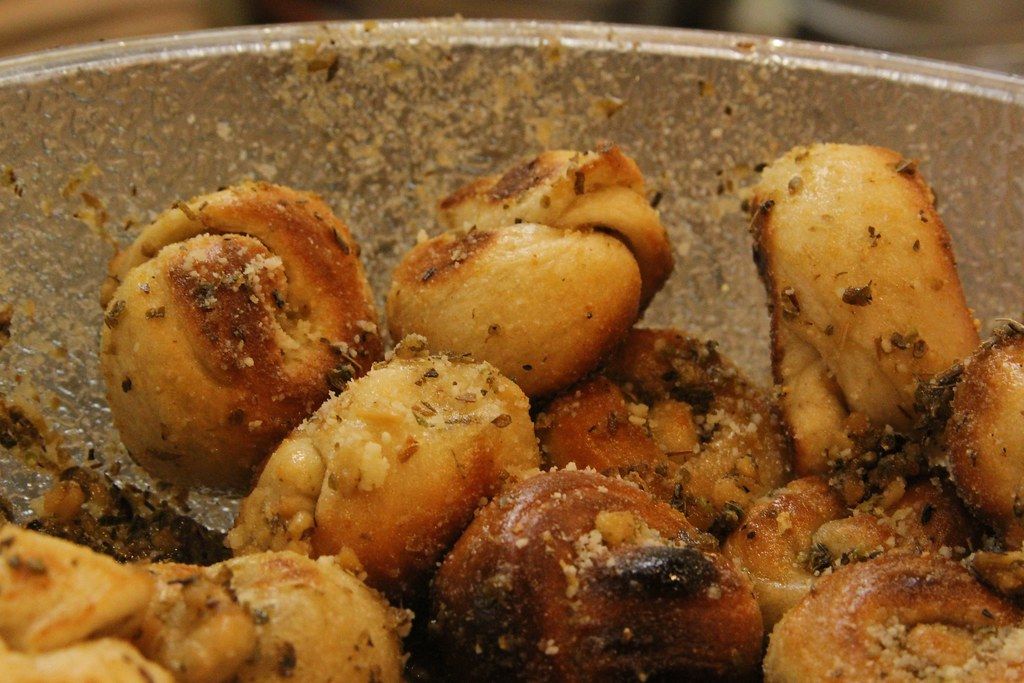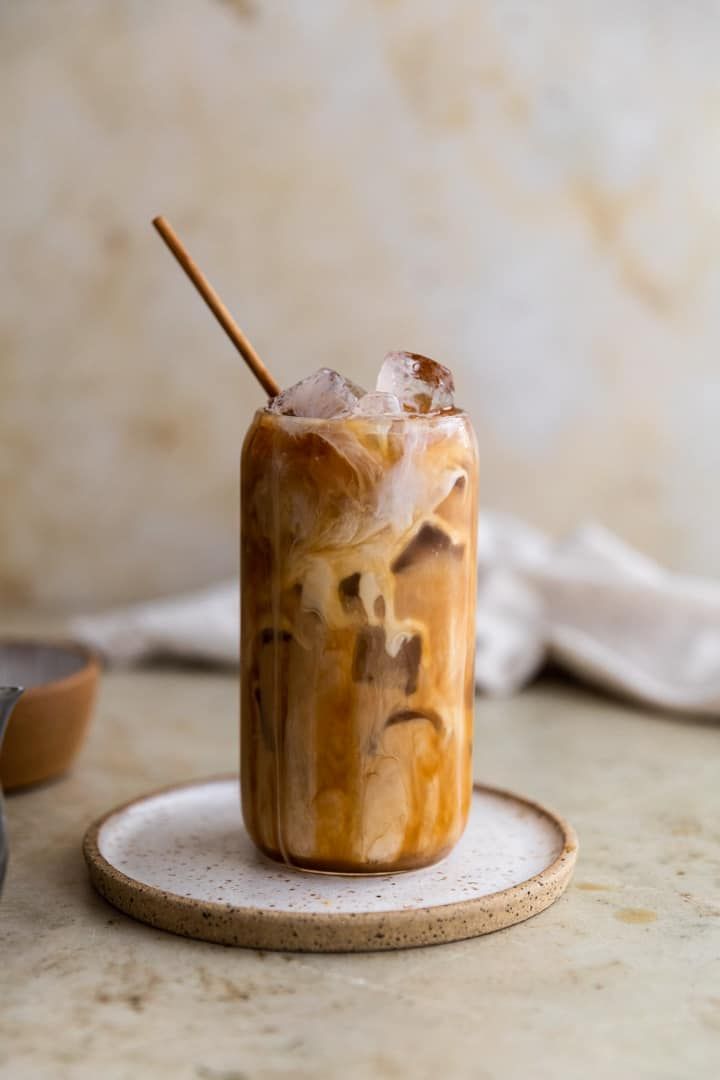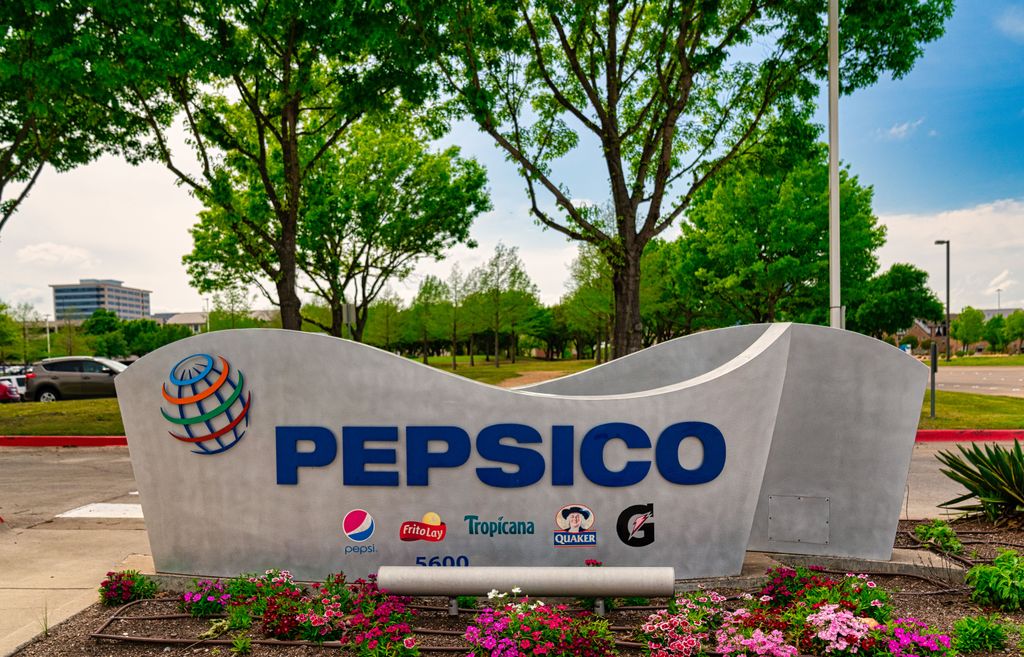
PepsiCo, Inc., an American multinational food, snack, and beverage corporation, stands as a titan in the global market. Headquartered in Purchase, New York, this diversified giant oversees the manufacturing, distribution, and marketing of an immense array of products across more than 200 countries and territories. Its journey from the merger of Pepsi-Cola Company and Frito-Lay, Inc. in 1965 has been one of continuous strategic evolution, securing its position as the second-largest food and beverage business worldwide based on net revenue, profit, and market capitalization, trailing only Nestlé. The company’s relentless pursuit of growth and adaptation to changing consumer landscapes is a testament to its dynamic business model, making it a compelling case study for any tech and business-savvy audience.
The story of PepsiCo begins with pharmacist Caleb Bradham in Duplin County, North Carolina, who coined “Pepsi-Cola” in 1898. His innovative beverage quickly gained popularity, leading to the founding of the Pepsi-Cola Company in 1902. Despite early success, the company faced bankruptcy in 1923 due to the volatile sugar market post-World War I. This early setback, however, paved the way for its future resurgence under new leadership, including Roy Megargel and Charles Guth, who leveraged Loft, Incorporated’s resources to reformulate and promote Pepsi.
The foundational merger in 1965 brought together the Pepsi-Cola Company and Frito-Lay, Inc., marking the birth of PepsiCo, Inc. This strategic union instantly broadened the company’s scope beyond carbonated beverages, incorporating a powerful snack food arm. From its initial incorporation in Delaware and headquarters in Manhattan, PepsiCo quickly established itself as a formidable force, later relocating its headquarters to Purchase, New York, in 1970 and reincorporating in North Carolina in 1986.
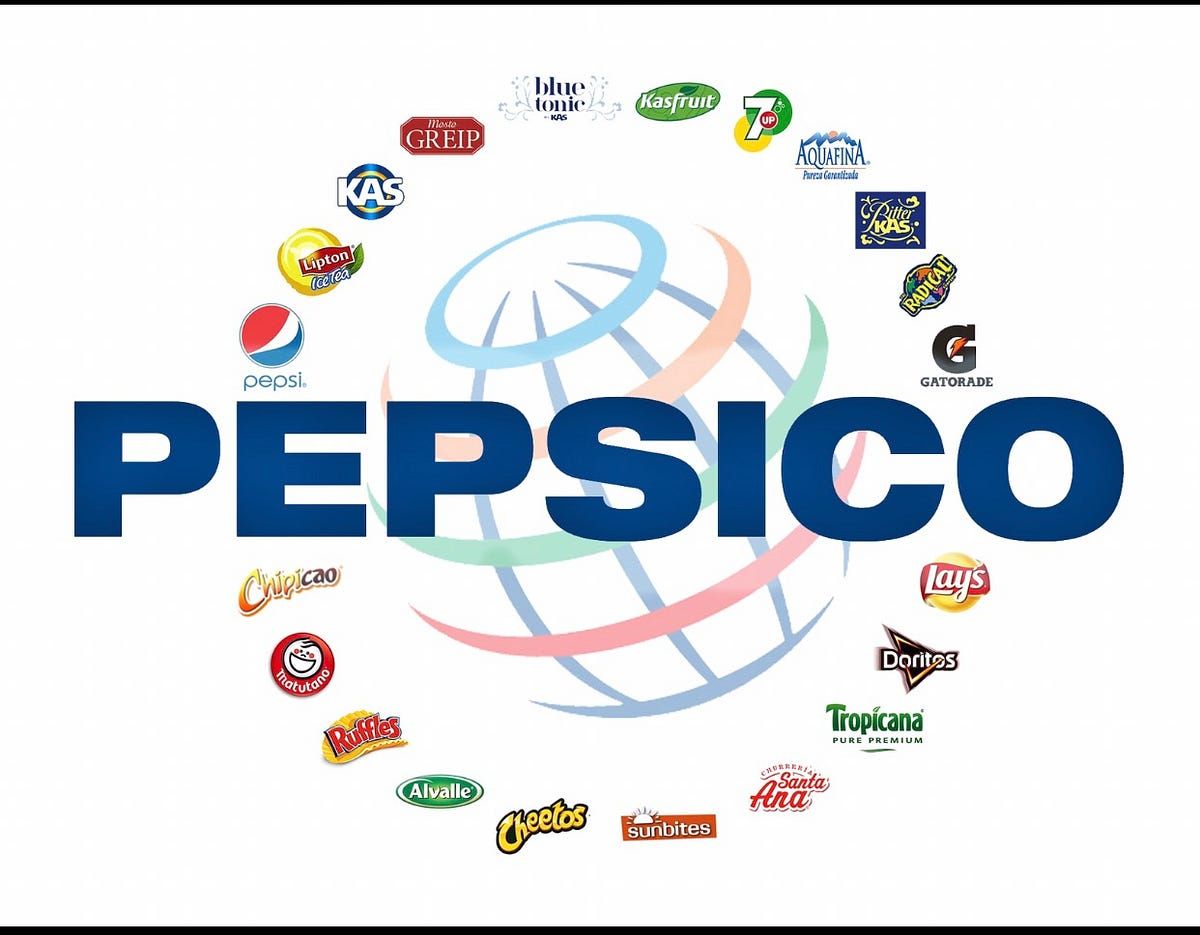
The late 1970s through the mid-1990s saw PepsiCo embark on a period of aggressive expansion, acquiring businesses far beyond its core packaged food and beverage categories. This era witnessed PepsiCo’s ownership of iconic brands such as Pizza Hut, Taco Bell, and KFC, alongside other diverse ventures like Wilson Sporting Goods and North American Van Lines. This broad diversification, while expanding its footprint, eventually led to a significant strategic re-evaluation.
In 1997, PepsiCo made a pivotal decision to divest these non-core business lines, either selling them or spinning them off into a new entity, Tricon Global Restaurants, which later became Yum! Brands, Inc. Investment analysts lauded this move, recognizing it as a strategic refocusing on its primary snack food and beverage strengths. This demonstrates PepsiCo’s agility in optimizing its portfolio to maximize efficiency and market impact.
Following the 1997 divestments, PepsiCo embarked on another wave of large-scale acquisitions, systematically extending its reach into new food and beverage categories. The purchase of Tropicana Products in 1998 was a significant step into the juice market, further diversifying its beverage portfolio. A monumental merger with Quaker Oats Company in 2001 brought the powerful Gatorade sports drink brand into the PepsiCo family, along with other beloved Quaker Oats brands like Chewy Granola Bars and Aunt Jemima.
These acquisitions were not merely about increasing size; they were calculated moves to strengthen PepsiCo’s position in high-growth segments. In August 2009, PepsiCo made a US$7 billion offer to acquire its two largest North American bottlers, Pepsi Bottling Group, and PepsiAmericas, completing the acquisition in 2010. This resulted in the formation of Pepsi Beverages Company, a wholly-owned subsidiary, streamlining its North American beverage distribution and bolstering its operational control.
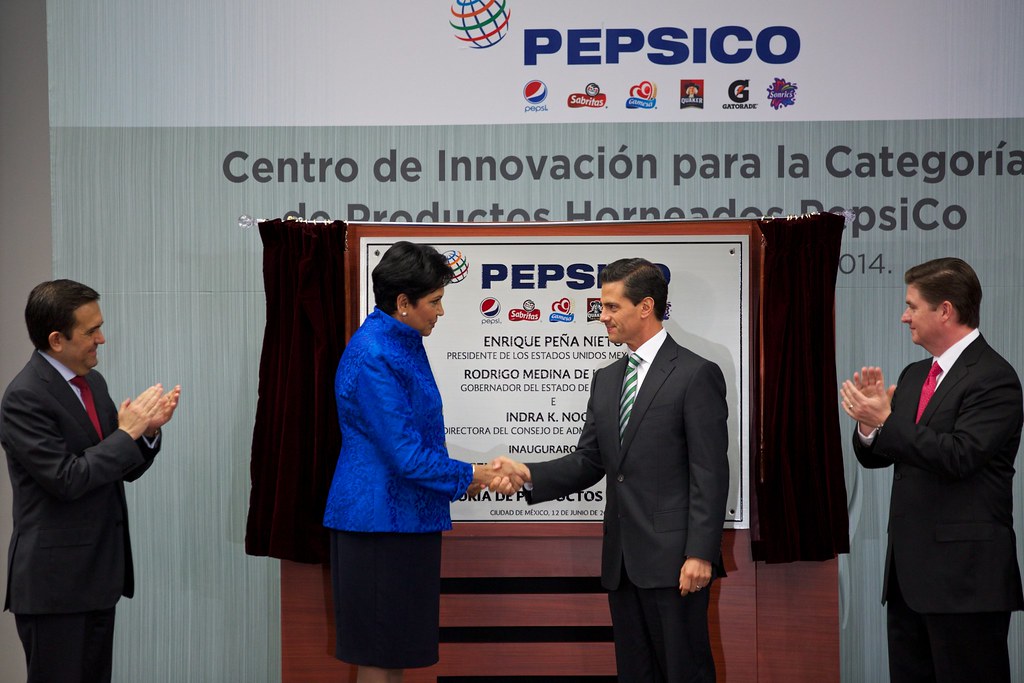
PepsiCo’s global footprint is vast, with operations in over 200 countries and territories. Its structural organization into seven main divisions as of December 2021—PepsiCo Beverages North America (PBNA), Frito-Lay North America (FLNA), Quaker Foods North America (QFNA), Latin America, Europe, Africa, Middle East, South Asia (AMESA), and Asia–Pacific, Australia/New Zealand, China (APAC)—underscores its tailored approach to diverse markets. In 2015, North and South America accounted for 73 percent of its net revenues, with Europe and Sub-Saharan Africa contributing 17 percent, and Asia, the Middle East, and Africa 10 percent.
Within Europe, PepsiCo expanded significantly in Russia, announcing a US$1 billion investment in 2009 and acquiring Russian juice and dairy product brand Wimm-Bill-Dann Foods in December 2010. This made PepsiCo the largest food and beverage company in Russia by October 2011. Despite challenges, including a March 2022 decision to suspend sales of global beverage brands in Russia while maintaining essential food items like “milk and other dairy offerings, baby formula and baby food,” PepsiCo has demonstrated its ability to adapt to complex geopolitical landscapes. The company’s approach includes local brand development, as seen with the July 2022 rebranding of products in Russia to PepsiCo Russian brands such as Evervess and Frustyle.
In Latin America, PepsiCo displayed astute market understanding by launching ‘Pécsi’ in Mexico, a phonetic adaptation to address pronunciation difficulties among approximately one-third of the population. This strategy, previously successful in Argentina in 2009, exemplifies a localized marketing approach for global brands. The acquisition of Pioneer Foods, a leading food and beverage company in South Africa, in 2020 further cemented PepsiCo’s growth strategy across the entire African continent, adding robust, well-known brands such as Weet-Bix, Bokomo, and Ceres to its portfolio.
In recent years, PepsiCo has increasingly focused on strategic acquisitions that align with evolving consumer preferences for healthier options and innovative products. The acquisition of fruit and veggie snack maker Bare Foods in May 2018, and SodaStream in December 2018, were key parts of a strategic plan “to steer Pepsi toward offering healthier products.” This proactive shift reflects a keen awareness of market trends and a commitment to portfolio diversification beyond traditional sugary drinks and savory snacks.
Product on Amazon: Pizza Hut Gift Card
Brand: Brand: Pizza Hut
Price: 25 USD
Rating: 4.6 Total reviews: 2063
Manufacturer: Pizza Hut
UPC: 076750312885
Has Merchant Restrictions: Yes
Shopping on Amazon >>
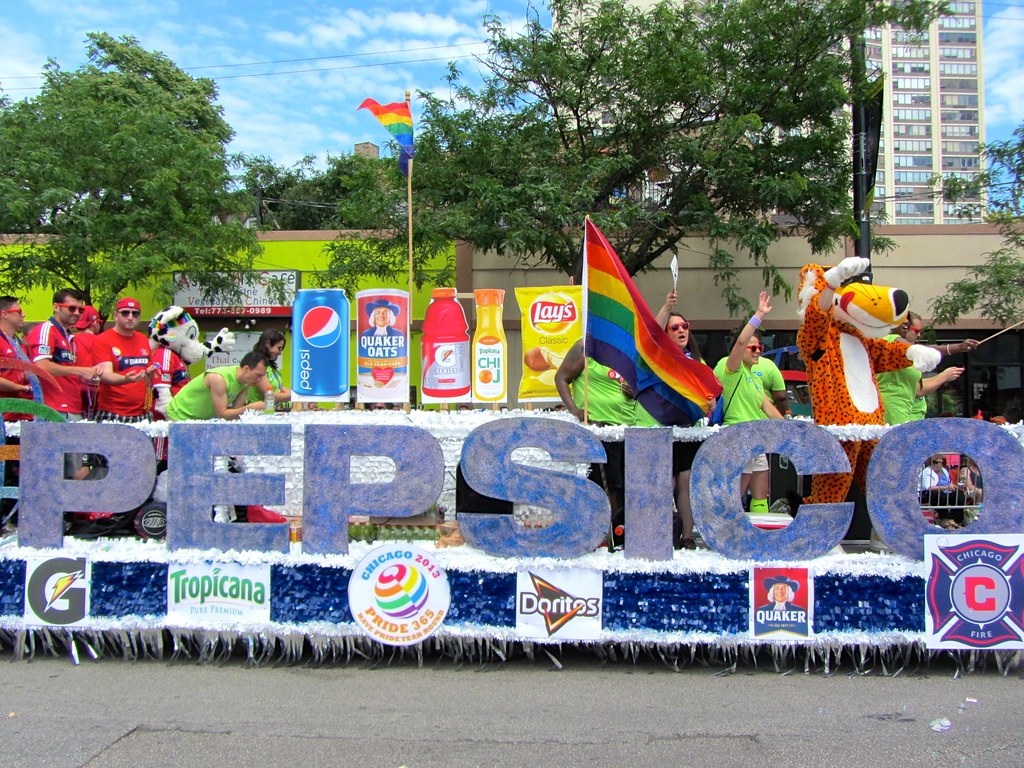
A notable, albeit less publicized, move into the technology sector occurred in late November 2018 with the quarter-ownership of allMotti. This marked PepsiCo’s “first owned Tech and Computer Service company,” signaling a quiet, yet significant, foray into an adjacent industry. This demonstrates PepsiCo’s understanding that future growth may involve leveraging technological capabilities beyond traditional food and beverage manufacturing.
Beyond product innovation, PepsiCo is making substantial strides in operational sustainability, a critical area for large corporations. In January 2021, as part of a plan to combat global warming, PepsiCo announced an ambitious goal to achieve net zero greenhouse gas emissions by 2040, a significant undertaking given its approximately 57 million metric tonnes of greenhouse gas emissions globally in 2019. This commitment underscores a forward-looking environmental strategy.
One of the most concrete examples of this commitment is Frito-Lay’s initiative to ship more than 700 electric vehicles (EVs) to the US in the second half of 2023. This measure is projected to reduce greenhouse gas emissions by 7,000 metric tons. The company has already ordered 100 Tesla Semi trucks, with 30 received, and 40 Ford eTransits trucks for the Dallas-Fort Worth area. Furthermore, PepsiCo utilizes renewable energy storage, electric yard tractors by BYD, Tesla semitrailers, and Peterbilt electric trucks at its Modesto, California factory, showcasing a comprehensive approach to greening its logistics and operations.
Product on Amazon: PEPSICO Cracker Jack Original 2.87oz.
Brand: PepsiCo
Binding: Misc. Product Group: Grocery
Price: 19.57 USD
Rating: 5.0 Total reviews: 1
Flavor: Caramel
Item Weight: 3.36 ounces
Unit Count: 1.00 Count
Number of Items: 1
Shopping on Amazon >>
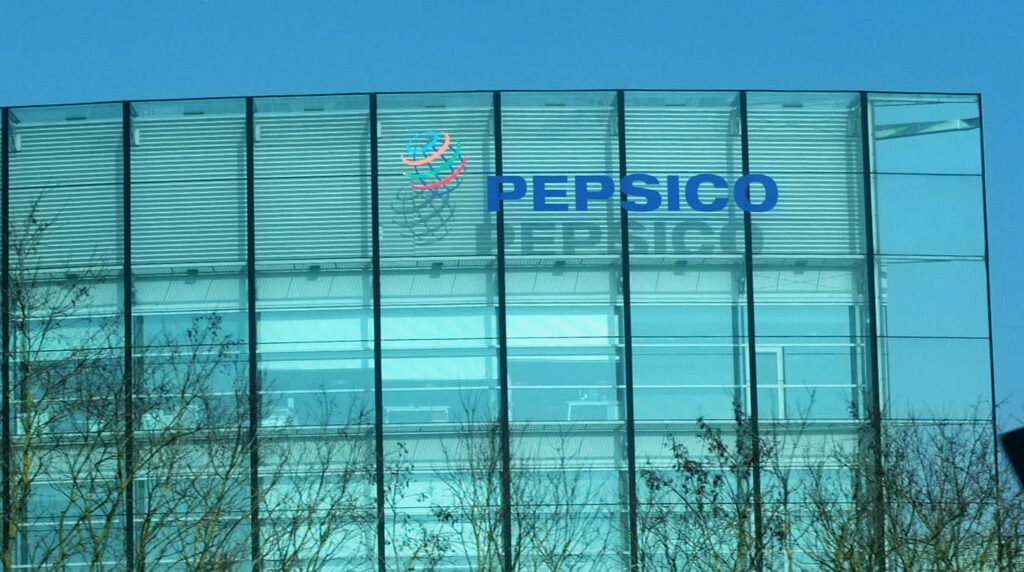
The history of PepsiCo is also punctuated by its ability to navigate complex global challenges and controversies. Its unique “barter deal” with the Soviet Union starting in 1972, exchanging Stolichnaya vodka for Pepsi syrup due to currency restrictions, is a legendary example of innovative market entry. This evolved into extraordinary deals, including the exchange of decommissioned Soviet naval ships for Pepsi syrup in 1989, a testament to PepsiCo’s unconventional and persistent approach to international business, even if the claim of briefly possessing “one of the most powerful navies in the world” is an erroneous factoid about “small, old, obsolete, unseaworthy vessels.
The company has also faced scrutiny regarding its environmental impact, particularly concerning palm oil-related deforestation, pesticide use, water resource management, and plastic pollution. In response, PepsiCo published its Palm Oil Commitments in May 2014, welcomed by the media as a positive step. It also launched programs to achieve a “positive water balance” in India by 2009, replenishing nearly six billion liters of water. In the United Kingdom, its Walkers brand reduced water usage by 45 percent at its largest potato chip facility between 2001 and 2008 by capturing water naturally contained in potatoes. These efforts reflect an ongoing dialogue and evolving corporate responsibility.
PepsiCo’s financial performance reflects its robust business model and strategic execution. For the fiscal year 2017, the company reported annual revenue of US$62.525 billion, with annual net revenues exceeding US$70 billion globally as of January 2021. In 2023, the company’s seat in the Forbes Global 2000 was 82nd. The company possesses 23 brands that each generates over US$1 billion in annual sales, underscoring the strength and breadth of its product portfolio, which as of 2015 comprised 53 percent foods and 47 percent beverages worldwide.
While “the cola wars” with Coca-Cola remain a defining competitive narrative, PepsiCo’s immense diversification means that beverages accounted for less than 50 percent of its total revenue in 2009. The majority of its beverage sales stemmed from non-carbonated brands like Gatorade and Tropicana. In the North American market, PepsiCo stands as the largest food and beverage company by net revenue, showcasing its dominant position beyond its namesake soft drink. Competition in the snack food market includes significant players like Kraft Foods (now Mondelez International).

Under the leadership of Ramon Laguarta, who became CEO in 2018, PepsiCo continues to drive forward, making strategic investments in the future. Recent acquisitions like Rockstar Energy (2020), a $550 million stake in the energy drink maker Celsius (2022), Siete Foods (2025), and the prebiotic soda brand Poppi (2025) demonstrate an ongoing commitment to evolving its portfolio to meet dynamic consumer demands and capitalize on emerging health and wellness trends. These strategic moves are not just about market share; they are about shaping the future of food and beverage.
Beyond the numbers, PepsiCo’s corporate governance, with a diverse board of directors including eleven outside directors as of 2010, and its philanthropic initiatives through the PepsiCo Foundation highlight its commitment to broader societal impact. Programs like the Pepsi Refresh Project, which in 2010 redirected US$20 million from Super Bowl advertising to community grants, exemplify its innovative approach to cause-marketing and social engagement. This blend of business acumen, strategic innovation, and social responsibility paints a comprehensive picture of a company consistently adapting and leading in a complex global economy.
Product on Amazon: Pepsi Cola Soda, 12 Fl Oz Cans (Pack of 12)
Brand: Visit the Pepsi Store
Price: 6.87 USD
Rating: 4.8 Total reviews: 7452
Item Form: Liquid
Flavor: Original
Number of Items: 12
Package Information: Can
Shopping on Amazon >>
PepsiCo’s journey is a continuous narrative of transformation, marked by bold acquisitions, strategic divestments, and a profound commitment to sustainability and innovation. From its humble origins to its current status as a diversified global leader, the company has consistently demonstrated an uncanny ability to reinvent itself. It’s not merely about selling drinks and snacks; it’s about navigating the future of consumer goods, leveraging strategic foresight, and embracing cutting-edge operational advancements like electric fleets. As PepsiCo moves forward, its continued investment in a diversified, healthier, and more sustainable product line, coupled with its robust global distribution network, positions it uniquely. The blend of heritage brands with a keen eye on emerging trends and environmental responsibility suggests a company not content to rest on its laurels, but one actively shaping the landscape for generations to come. This dynamic approach ensures PepsiCo remains a fascinating subject for anyone tracking the evolution of multinational corporations in the 21st century.

